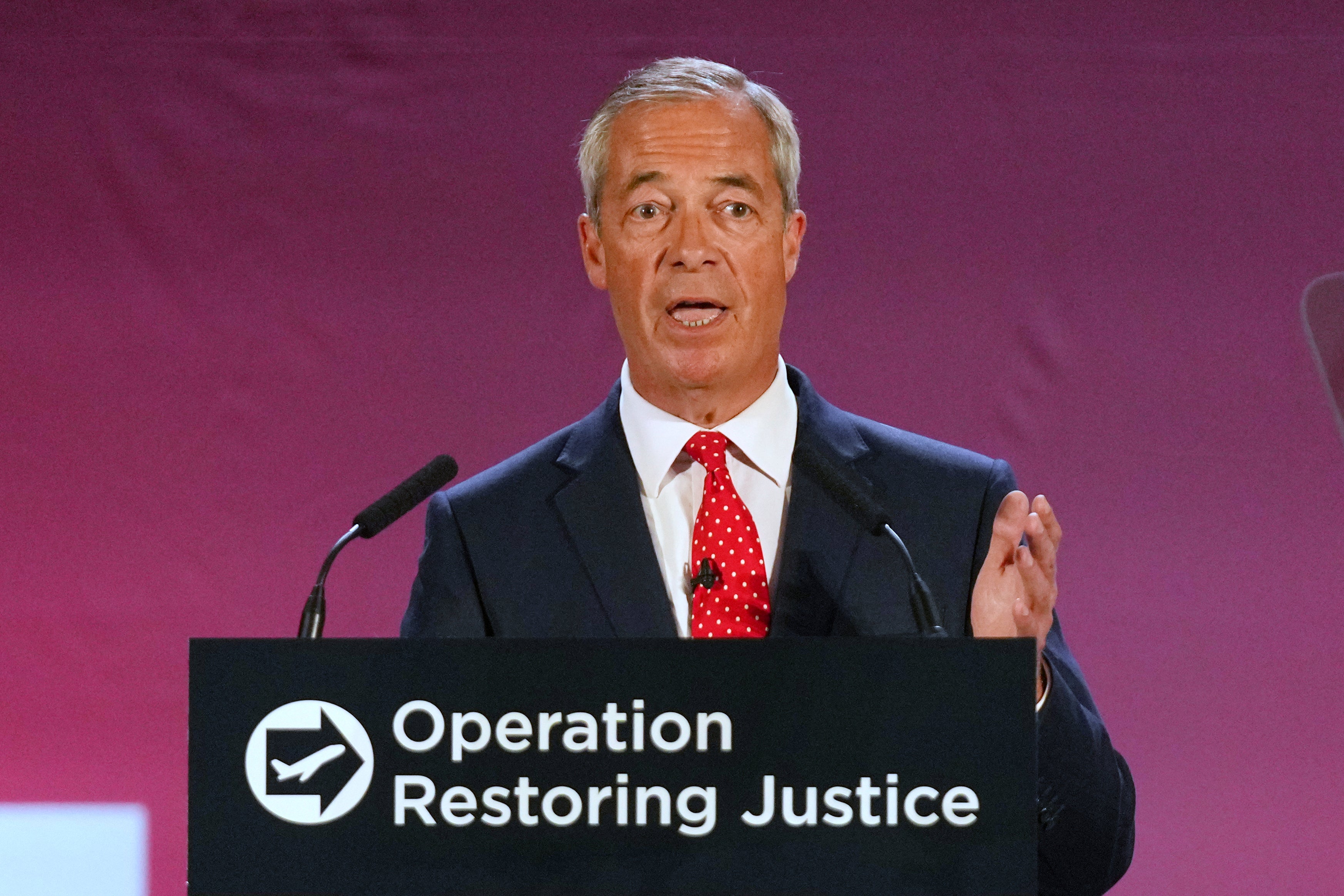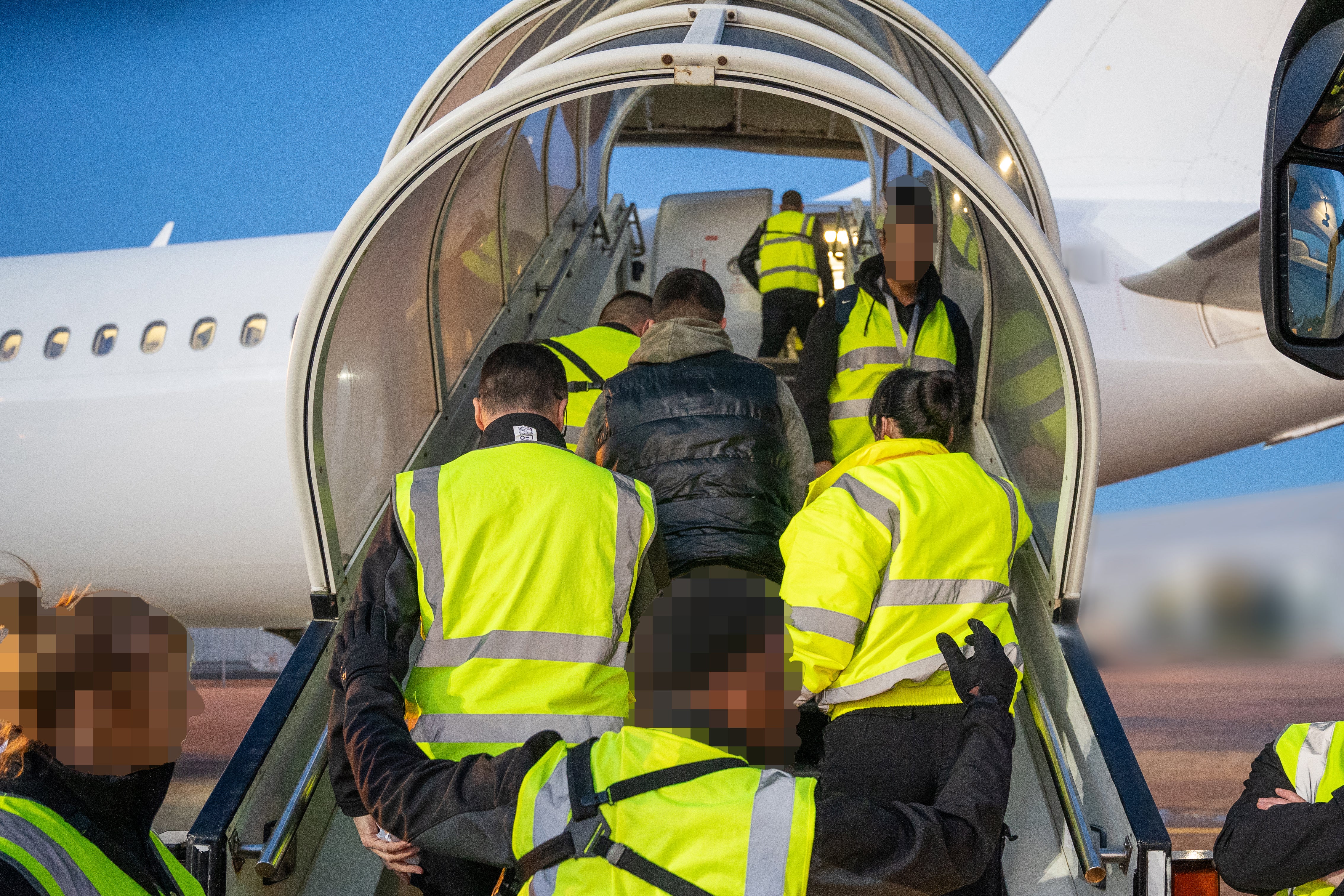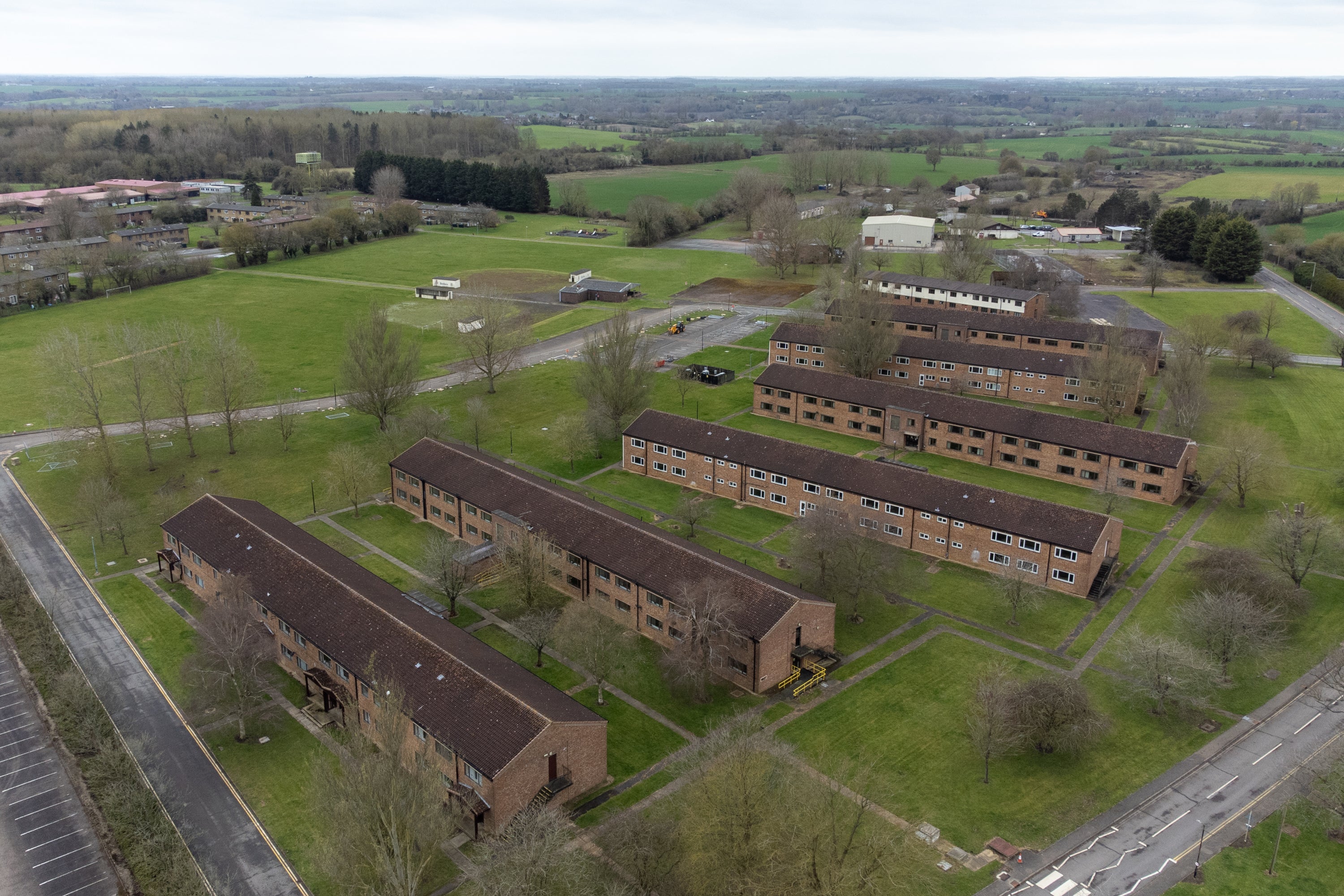Nigel Farage has unveiled radical plans for the mass deportation of asylum seekers, including children, to address what he claimed was a “rising anger” among the British public towards the UK’s small boats crisis.
At a press conference in London, he claimed the party would remove 600,000 asylum seekers under the first parliament of a Reform government, should they win power.
He also pledged to scale up detention capacity for asylum seekers to 24,000 and secure deals with countries such as Afghanistan, Eritrea and Iran to return migrants to their countries.
Reform claims the plan – which would require the UK to leave the European Convention on Human Rights (ECHR) and replace the Human Rights Act with a British Bill of Rights – will cost £10bn to implement but save £7bn currently spent on illegal migration during the first five years.

The party has said it would also ban anyone who arrives illegally from being able to claim asylum and allow asylum seekers to be detained until deportation.
The plans were condemned by the Refugee Council, which said “toxic narratives” were fuelling fear and division and real public concerns “are being exploited for political gain”, while Labour minister Matthew Pennycook said the plans were like “something put together on the back of a fag packet”.
Lawyers and campaigners have also criticised plans to quit the ECHR, with the proposals being dubbed both “legally extreme” and “a gift to repressive regimes”.
Reform’s latest intervention comes as Labour desperately attempts to get a grip on the migration narrative, as small boat crossings hit record highs, and the UK has seen a string of violent protests in response to the housing of migrants in hotels.
How has Reform calculated its costs?
Reform claims its plan will cost around £10bn over five years, at an average of £2bn a year.
But an analysis by The Independent, based on the latest cost estimates, found that it could mean spending £6.3bn each year on deportation flights alone and £3.6bn a year on converting detention facilities, as well as the unknown costs of a deal with third-party countries that agree to take in migrants deported from the UK.
The party has claimed that the current illegal immigration system costs £7bn a year, though it is unclear how this figure has been calculated.
Former chair Zia Yusuf and self-styled head of the party’s Department of Government Efficiency – made in the image of Elon Musk’s controversial cost-cutting Doge in the US – has claimed that Reform’s plan would save £7bn over the first five years. He claimed this would quickly jump to £42bn saved over a decade, but the party did not give any breakdown of where these savings would come from.
Deportation central
Reform is pledging to carry out five deportation flights a day, which would mark an unprecedented shift in the UK’s removal policy.
That would total 1,825 chartered flights a year – a 3,967 per cent increase on current levels.
The Labour government has only chartered 46 flights since coming into power, according to Home Office figures from March. These figures are in line with those under the previous Tory government.
The exact costs of deportations are unknown and vary significantly, but previous Home Office figures range from £8,000 to £15,000 per person.
A 2023 impact assessment, the latest available, estimated that flight and escorting costs would be as high as £22,000 per person for those being deported under the Tories’ failed Rwanda scheme. This does not include costs of detention, Home Office expenses from handling cases or enforcement costs.

If these prices still hold, then the cost of deporting up to 288,000 illegal migrants a year – as claimed by Mr Farage today – could be as high as £6.3bn for flights alone.
Detention is expensive
A key part of Reform’s plan is to detain asylum seekers as soon as they arrive in the UK.
But the cost of detaining migrants, in prison-style conditions, is more expensive than housing asylum seekers in other accommodation, averaging £133.51 per day, according to the latest Home Office figures.
Detention requires round-the-clock security and enforcement, leading to higher costs than temporary accommodation.
By comparison, it cost £77.05 per day on average to house asylum seekers in 2024-25, Migration Observatory figures show, and £118.87 per person, per night for migrant hotels in March.
Reform’s aim would likely be to offset this by holding migrants for short periods before deportation, while current asylum wait lists are often over six months.
However, it is hard to guarantee that officials would be able to handle the high levels of processing needed to speed up deportations, meaning that the average stay for a detainee would be unknown.
Cost of converting RAF bases
Ramping up immigration detention will also require a significant investment in new facilities.
Reform plans to convert RAF bases into “secure immigration removal centres”, which would involve building two-person rooms, canteens, and medical suites.
The cost of similar facilities, such as the former RAF base in Wethersfield, which is now used as asylum housing, has been criticised for its “eye-watering” costs.
And in 2024, the National Audit Office (NAO) warned that using large accommodation sites, like the Bibby Stockholm barge, cost the government £46m more than hotels.

Wethersfield costs over £100m a year but can house fewer than 600 people, according to a report last year by the Helen Bamber Foundation.
Reform is hoping that these converted facilities would house up to 24,000 people, up from the 2,500 housed at similar sites last spring.
If the costs of Wethersfield are anything to go by, Reform could end up spending up to £3.6bn a year for the new detention facilities.
Another Rwanda scheme?
Mr Farage also floated the idea of third-country deportations, which could include possible deals with Rwanda and Albania.
Though no cost was provided for these third-country deals, the previous government’s Rwanda scheme cost £700m, according to the home secretary, Yvette Cooper – with just four people deported.
A 2023 impact assessment estimated that third-party countries would bear the cost of up to £100,000 for every relocated migrant. Reform would therefore have to make any arrangement worth their while.
Legal worries
Leaving the ECHR would require parliamentary approval to repeal the Human Rights Act 1998, which incorporates ECHR rights into UK law.
But such a move would also breach the Good Friday Agreement – the 1998 peace accord that ended decades of conflict in Northern Ireland – as this guarantees the convention’s enforceability in Northern Ireland.

There are fears that such a move would undermine the UK’s international standing, with Downing Street saying it would put Britain in the same camp as Russia and Belarus.
Dominic Grieve, co-president of European Movement UK and former attorney general, told The Independent that quitting the ECHR would lead to a “whole host of political problems”.
He warned: “It would unravel the Good Friday Agreement, destabilise our devolution settlements, and collapse our security and trade deal with the EU – undermining data sharing, extradition, and policing cooperation that keep us safe”, he said, warning it would lead to a “profound loss of influence, security and stability”.
Kolbassia Haoussou from Freedom from Torture dubbed the plans “a gift to repressive regimes” and said Britain would be abandoning one of humanity’s “clearest moral lines”.
Adam Wagner KC, a human rights lawyer, said Mr Farage’s proposals were both “legally extreme” and misleading.
“A lot of the rights contained in the European convention come from British common law: the right to a fair trial, freedom of religion, and the right not to be tortured,” he told The Guardian.







